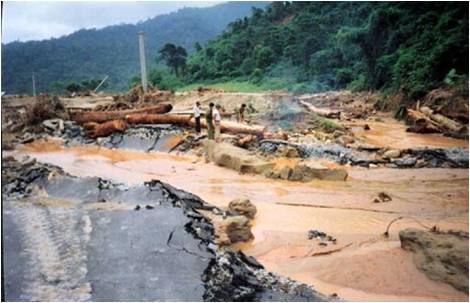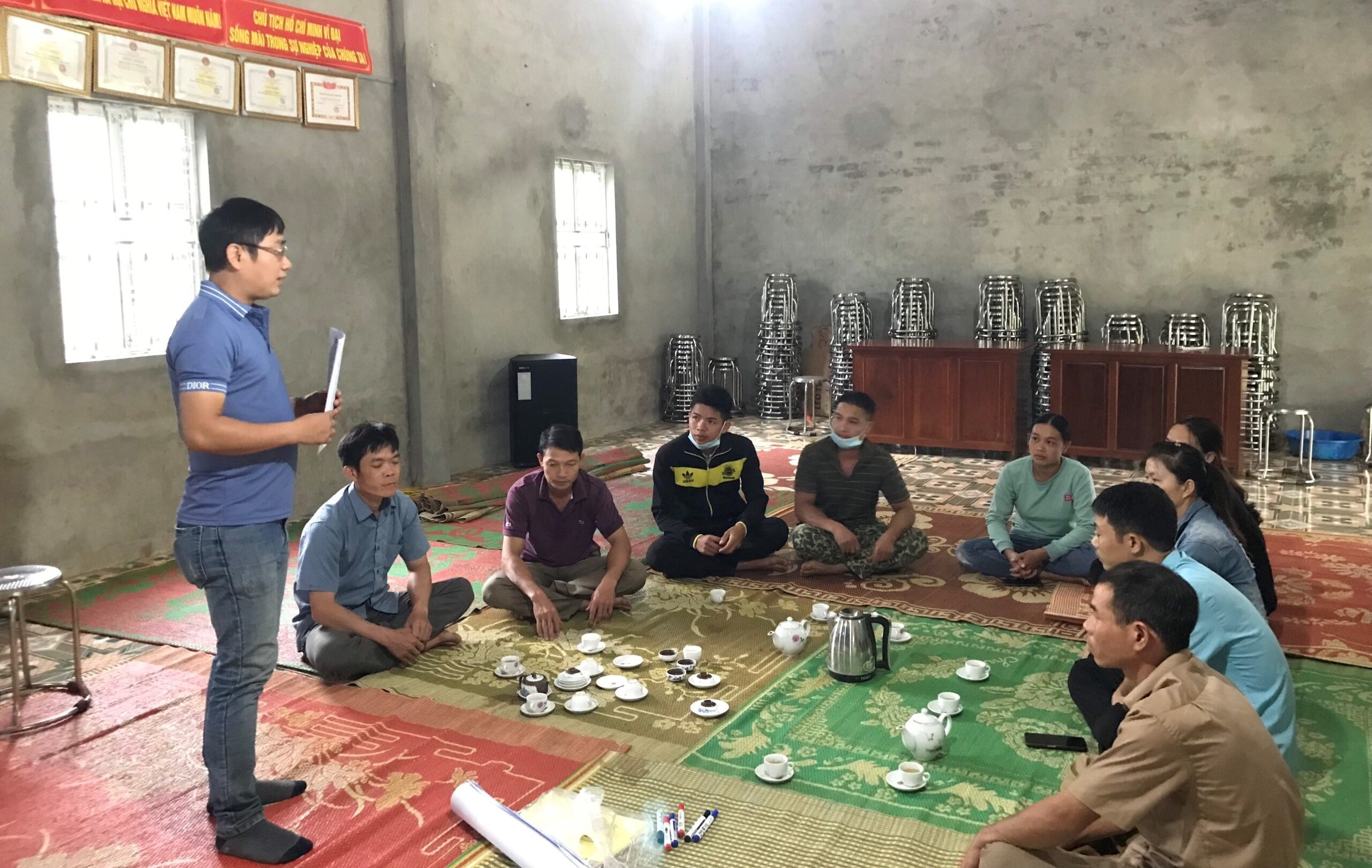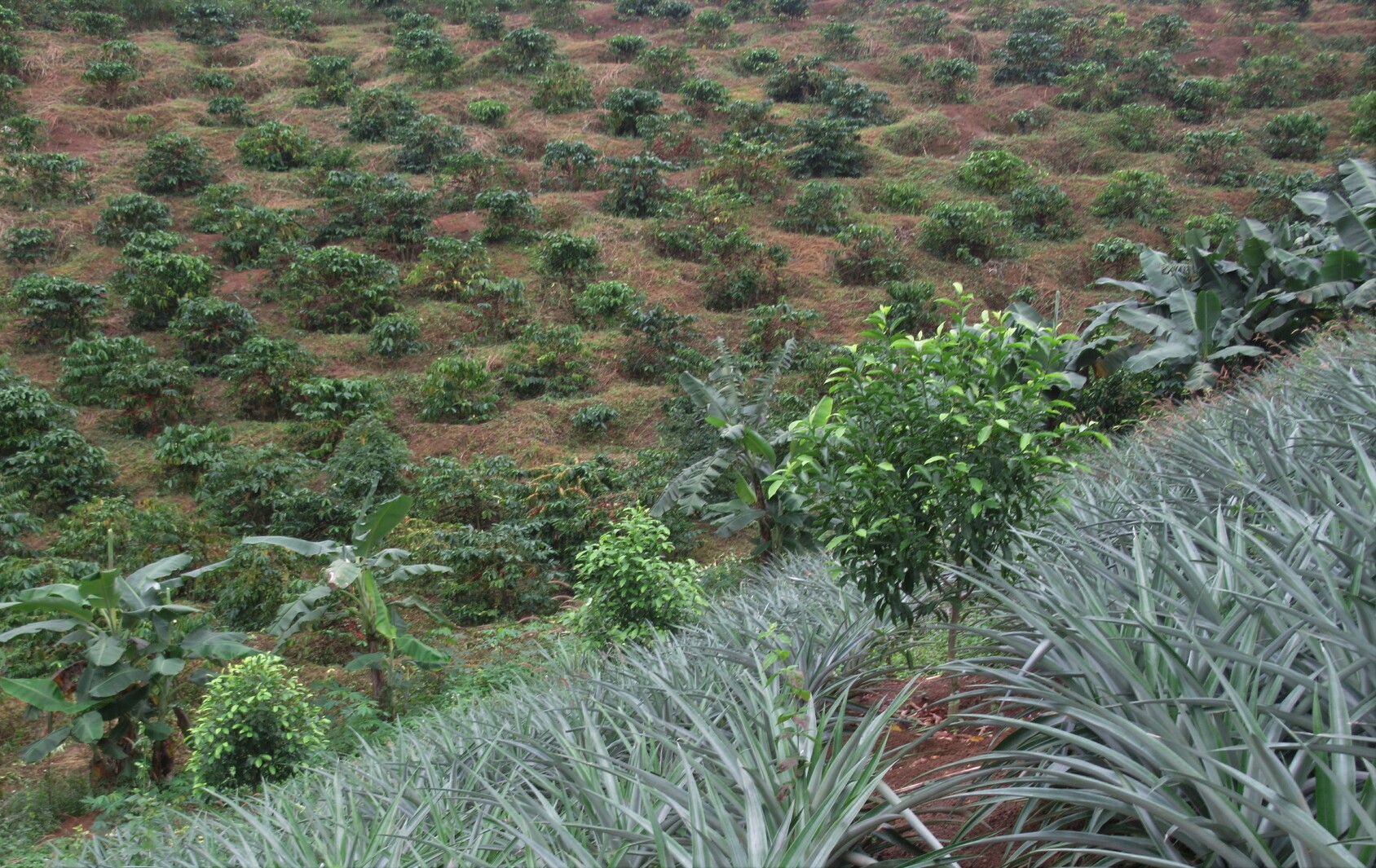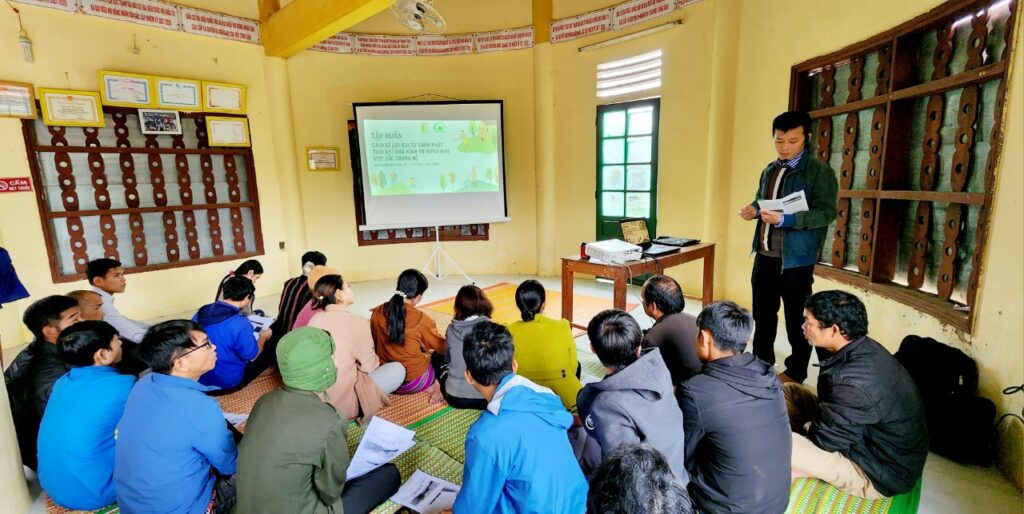This study, conducted by PanNature with financial and technical support from the NTFP-EP program, primarily aims to evaluate the impact of community consultation processes and mechanisms ensuring community participation in recognizing traditional rights in Vietnam, with a particular emphasis on Free, Prior, and Informed Consent (FPIC). The study focuses on regions characterized by mountainous terrain and forest landscapes.

Small and Medium Hydropower: Great Impacts on Environment but Less Supervision of Environmental Impact Assessment
This report is a result of the small research project supported as part of the fellowship program provided by the UNEP Eco-Peace Leadership Center for Ms. Do Thi Hai Linh, PanNature’s Communication Manager in 2006. The research was supervised by Dr. Jin Hong Kim Chung-Ang University.

Son Kim 1was the most damage by flooding in 2002. There was a whole village swept out in the flooding. Photo: UNEP-EPLC
Medium and small hydropower (MSH) development is booming in Vietnam in recent years. On one hand, MSH contribute to the national electricity grid to supplement energy for Vietnam’ industries. On the other hand, they cause a lot of severely negative impacts on natural and social environment.
Local communities play a vital role in the process of MSH planning, construction and operation. They may be either beneficiaries or victims of MSH development. Community consultation is a regulated requirement for environmental impacts assessment (EIA) for any MSH project in Vietnam. This adopts a grassroot democracy mechanism to minimize negative impacts that MSH might potentially affect local livelihood and community wealth. Community responses provide a significantly useful reference for decision makers to continue or terminate MSH project proposals.
However, some investors has ignored these requirements, or blind local communities due to their unadequate awareness to MSH impacts, or even some tries to violate or take advantage from gaps in EIA regulations to marginalise community consultation.
The survey was conducted in Son Kim 1 commune, Huong Son district, Ha Tinh province so as to address those concerns. The survey’s results showed not much difference between the assumption of the working group before the field trip and the fact. Local community were lacking awareness and understanding about the environmental and social impacts of MSH projects. They did not have enough capacity and opportunities to give feedbacks or consultation for MSH project.
Although giving some primary recommendations for Son Kim 1 situation, the working group should take deeper study to make this a tyical research that can be applicated in difference area and considered an example for the policy advocacy process.
Download the full report here >> (File PDF, 524 KB)



